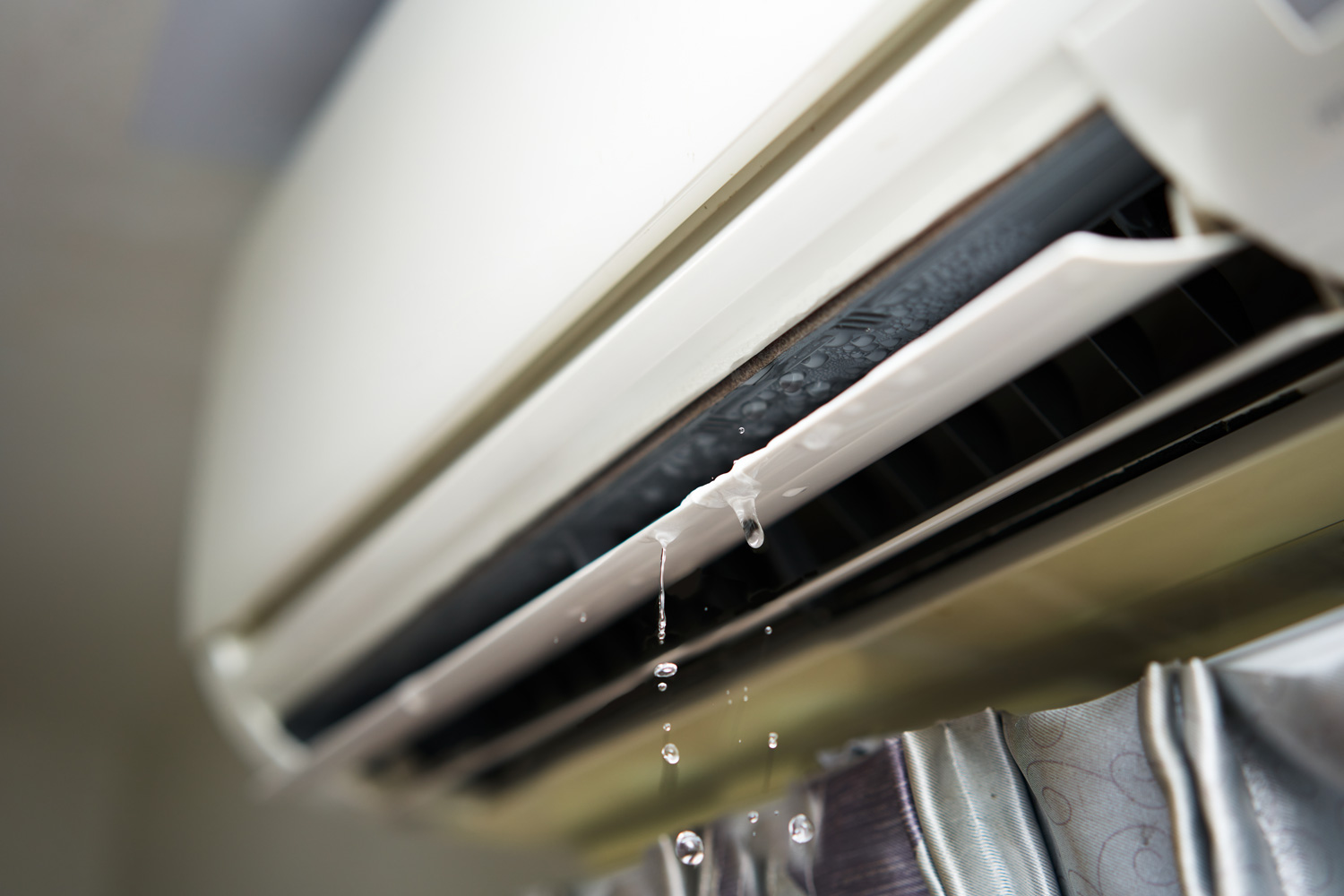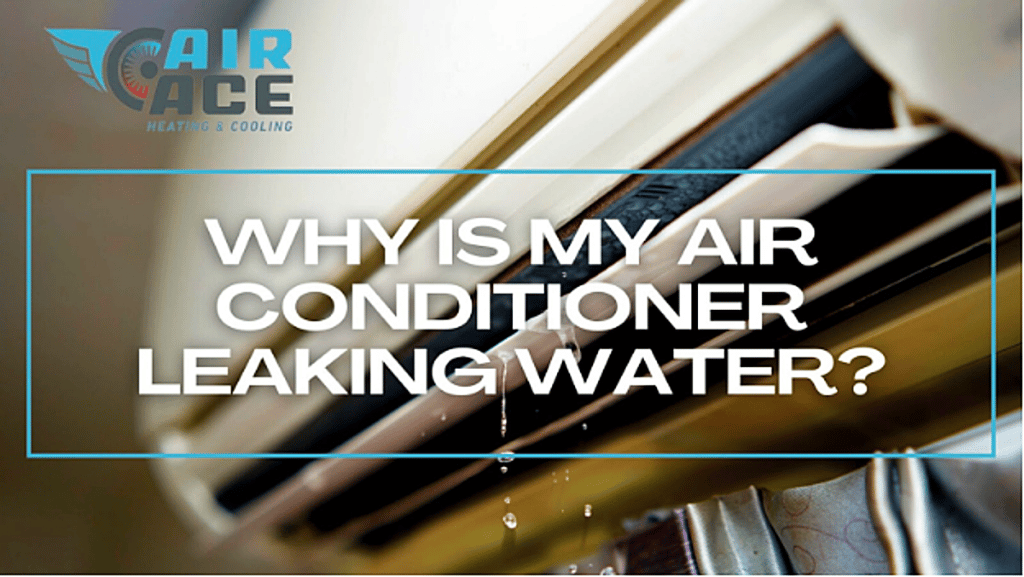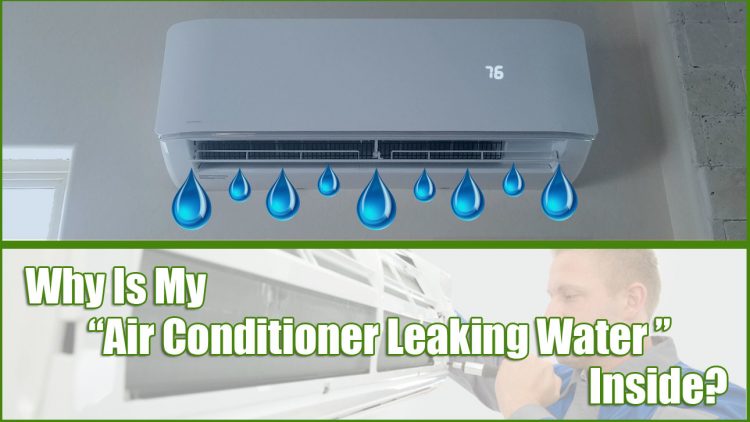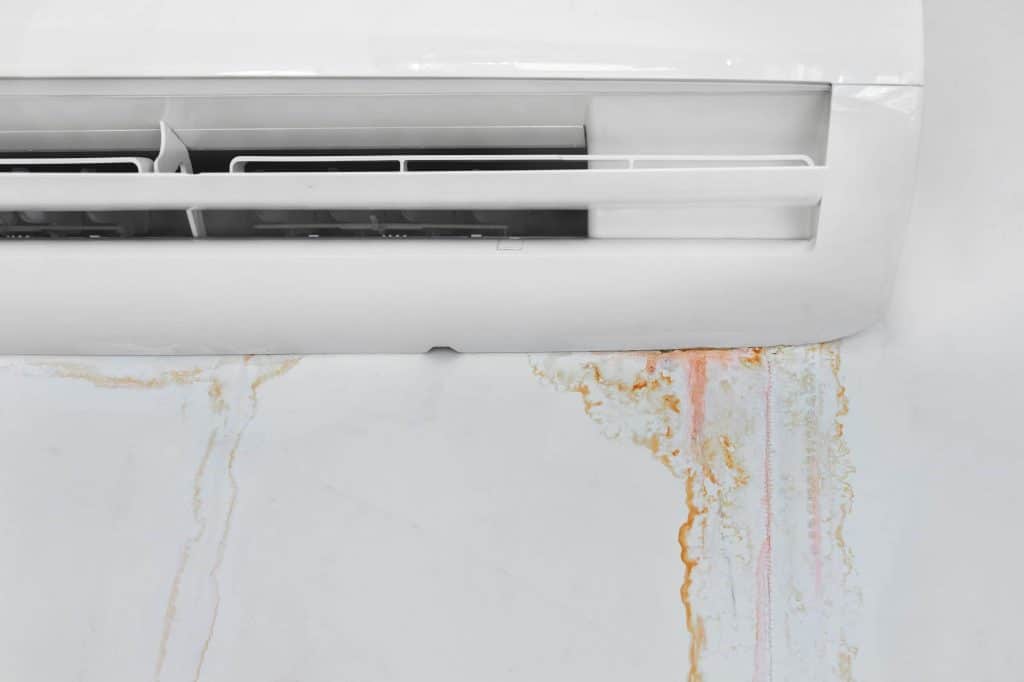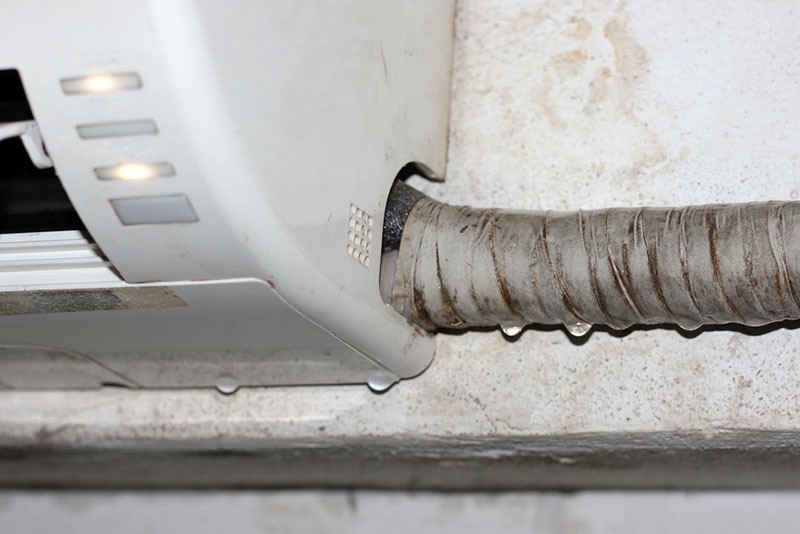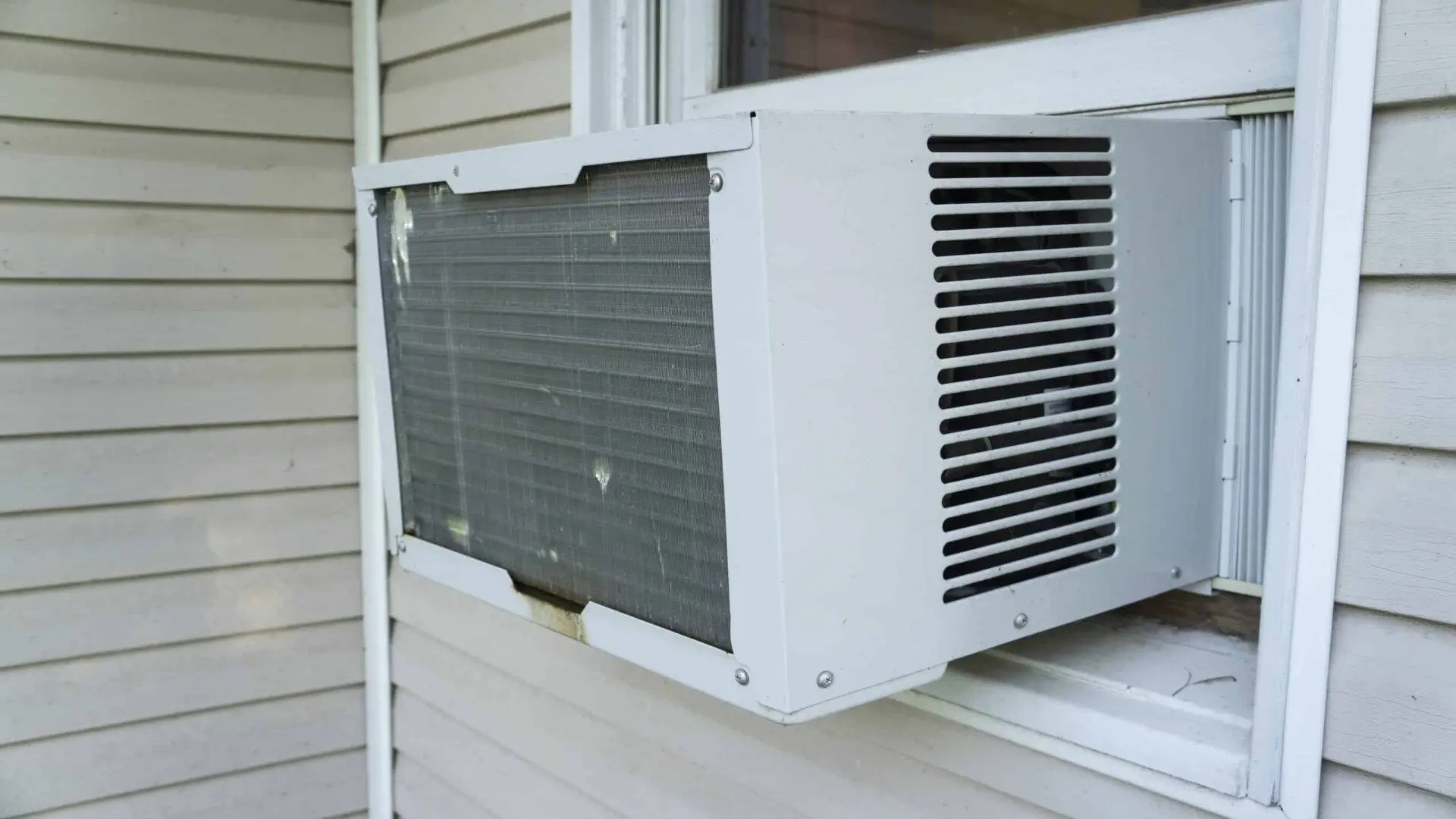Why Is There Water In My Air Conditioner
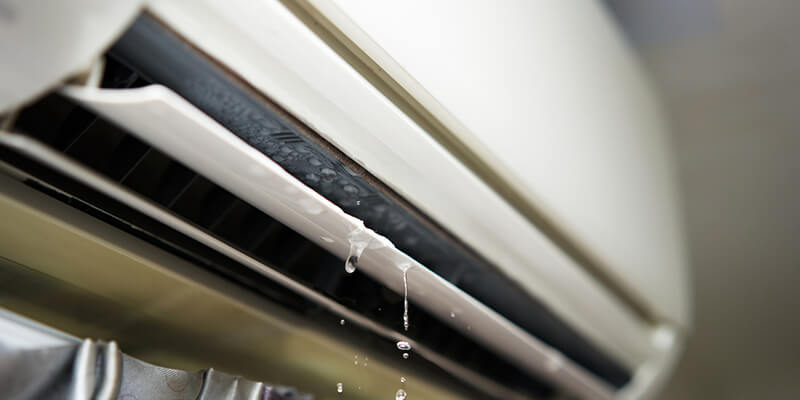
Frequently Asked Questions: Water In Your Air Conditioner
It's common to see water coming from your air conditioner, especially during hot and humid weather. But when is it normal, and when should you be concerned? This FAQ will answer your most pressing questions about water and your AC unit.
Q1: Is it normal for my air conditioner to produce water?
Yes, it is absolutely normal for your air conditioner to produce water. Air conditioners work by cooling air, and this process causes condensation. Think of it like a cold glass of water on a warm day – water droplets form on the outside. The same thing happens inside your AC unit.
The warm, humid air passes over the cold evaporator coils. As the air cools, the moisture in the air condenses into water. This water is then typically drained away through a drain line.
Q2: How much water should my AC be producing?
The amount of water your AC produces depends on a few factors:
- Humidity levels: The more humid the air, the more water your AC will produce.
- Temperature: The hotter it is, the longer your AC will run, and the more water it will generate.
- AC unit size: A larger AC unit will cool more air and therefore produce more condensation.
- Usage: How often and for how long you run your AC significantly impacts water production.
On a hot, humid day, a properly functioning AC unit can produce several gallons of water. A small puddle or a slow drip is usually nothing to worry about. However, large pools of water, consistent leaks, or water damage are signs of a problem.
Q3: Where should the water be draining from?
The water should be draining from the designated drain line. This is usually a PVC pipe that exits the unit (either the indoor or outdoor unit, depending on the system) and directs the water away from the house. It's typically a small, unassuming pipe.
For the indoor unit (often found in your attic or closet), there will be a primary drain line and sometimes a secondary drain line. The secondary drain line is a backup in case the primary line gets clogged. If you see water dripping from the secondary drain line, it's a clear sign your primary drain line is blocked.
For the outdoor unit, you might see water dripping from the base of the unit. This is also generally normal, as the condensation process happens there as well.
Q4: What could cause my AC to leak water inside my house?
Water leaking inside your house is a sign that something is wrong. Here are the most common causes:
- Clogged Drain Line: This is the most frequent culprit. Algae, mold, dirt, and debris can build up in the drain line, blocking the water flow. The water then backs up and overflows, often leaking through the indoor unit.
- Broken Drain Pan: The drain pan is located underneath the evaporator coils and collects the condensation. If it's cracked, rusted, or damaged, the water will leak.
- Frozen Evaporator Coils: If the evaporator coils freeze, they can cause ice to melt and overflow the drain pan when the system is turned off. This can be caused by:
- Dirty Air Filter: A dirty air filter restricts airflow, causing the coils to get too cold.
- Low Refrigerant: Low refrigerant can also cause the coils to freeze.
- Blocked Return Air Vents: Similar to a dirty filter, blocked vents can reduce airflow.
- Improper Installation: If the AC unit wasn't installed correctly, the drain line might not be properly sloped, leading to water accumulation.
- Condensate Pump Failure (if applicable): Some systems use a condensate pump to pump the water uphill to a drain. If the pump fails, the water will overflow.
Q5: How can I fix a water leak from my AC?
Here are some steps you can take to address the problem:
- Check and Replace Your Air Filter: This is the easiest and most common fix. A clean air filter ensures proper airflow and prevents the coils from freezing. Change it monthly, or more often if you have pets or allergies.
- Clear the Drain Line: You can try to clear the drain line yourself. Here are a few methods:
- Wet/Dry Vacuum: Use a wet/dry vacuum to suck out any clogs from the end of the drain line.
- Pouring Vinegar: Pour a cup of distilled white vinegar into the drain line to kill algae and mold. Let it sit for 30 minutes, then flush with water.
- Using a Wire Brush or Stiff Wire: Gently insert a wire brush or stiff wire into the drain line to break up any clogs. Be careful not to puncture the pipe.
- Check the Drain Pan: Inspect the drain pan for any cracks or damage. If you find any, you'll likely need to replace it.
- Thaw Frozen Coils: If you suspect frozen coils, turn off your AC and allow the ice to thaw. You can speed up the process by using a fan to circulate air. Once the coils are thawed, address the underlying cause (dirty filter, low refrigerant, etc.).
- Call a Professional: If you've tried these steps and the leak persists, it's time to call a qualified HVAC technician. They can diagnose the problem and perform repairs, such as fixing refrigerant leaks, replacing damaged components, or correcting installation issues.
Q6: Can I prevent my AC from leaking water in the future?
Yes, you can take steps to prevent water leaks and maintain your AC unit:
- Regular Maintenance: Schedule annual maintenance with a qualified HVAC technician. They can inspect your unit, clean the coils, check the refrigerant levels, and identify any potential problems before they become major issues.
- Change Air Filters Regularly: As mentioned earlier, this is crucial for maintaining proper airflow and preventing frozen coils.
- Clean the Drain Line Periodically: Pour a cup of distilled white vinegar into the drain line every few months to prevent algae and mold buildup.
- Keep the Area Around Your Outdoor Unit Clear: Make sure there's no debris blocking the airflow around your outdoor unit. Trim any bushes or plants that are growing too close.
- Ensure Proper Insulation: Make sure the refrigerant lines are properly insulated to prevent condensation.
Q7: What are the potential consequences of ignoring a water leak from my AC?
Ignoring a water leak can lead to several serious problems:
- Water Damage: Water can damage your ceilings, walls, floors, and furniture. This can be costly to repair.
- Mold Growth: Moisture creates the perfect environment for mold growth. Mold can cause health problems and further damage your home.
- Electrical Damage: Water can damage electrical components in your AC unit and even pose a fire hazard.
- Reduced AC Efficiency: A malfunctioning AC unit will not cool your home as efficiently, leading to higher energy bills.
- Complete AC Failure: Untreated problems can eventually lead to complete AC failure, requiring expensive repairs or replacement.
In conclusion, while some water production is normal for an air conditioner, uncontrolled leaking is a sign of a problem that needs to be addressed promptly to prevent further damage and ensure your AC unit operates efficiently. Regular maintenance and timely repairs are key to keeping your AC running smoothly and your home dry.
